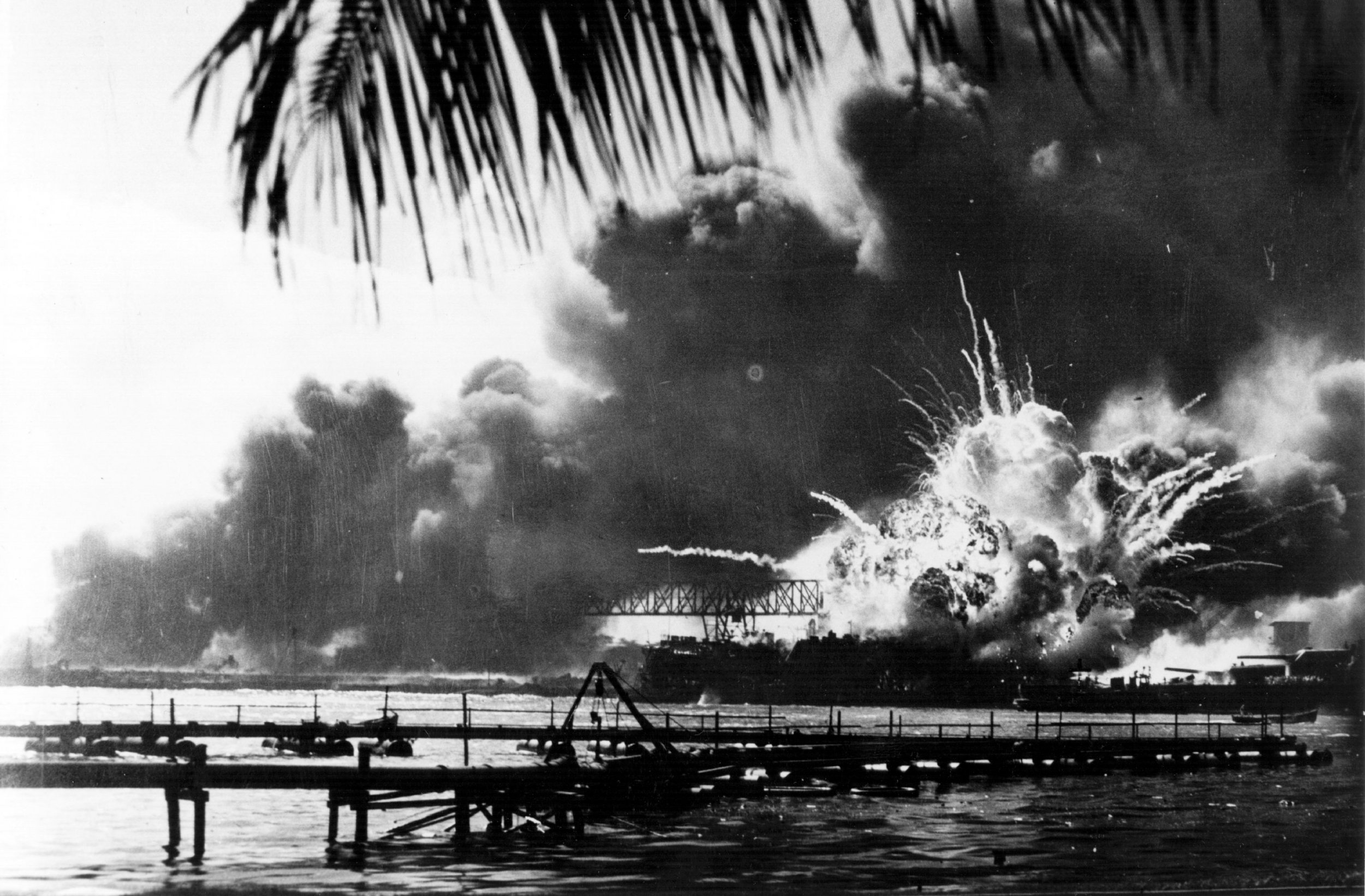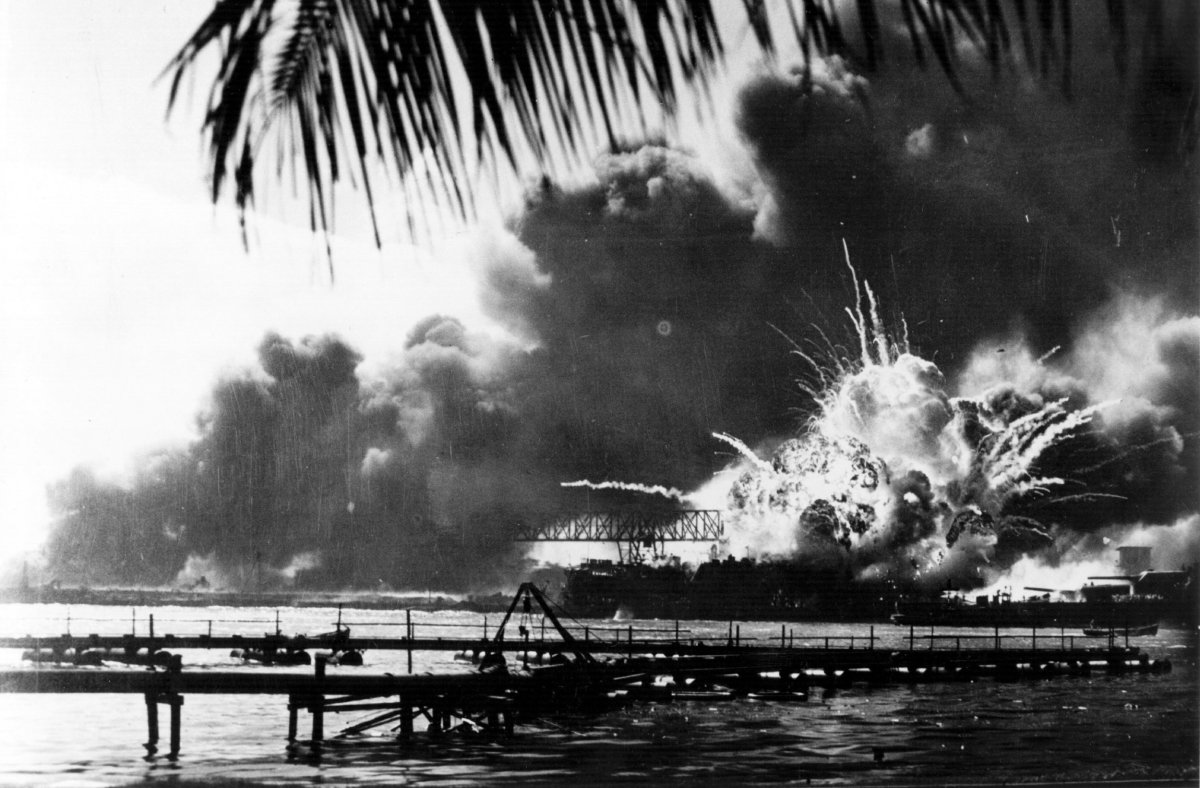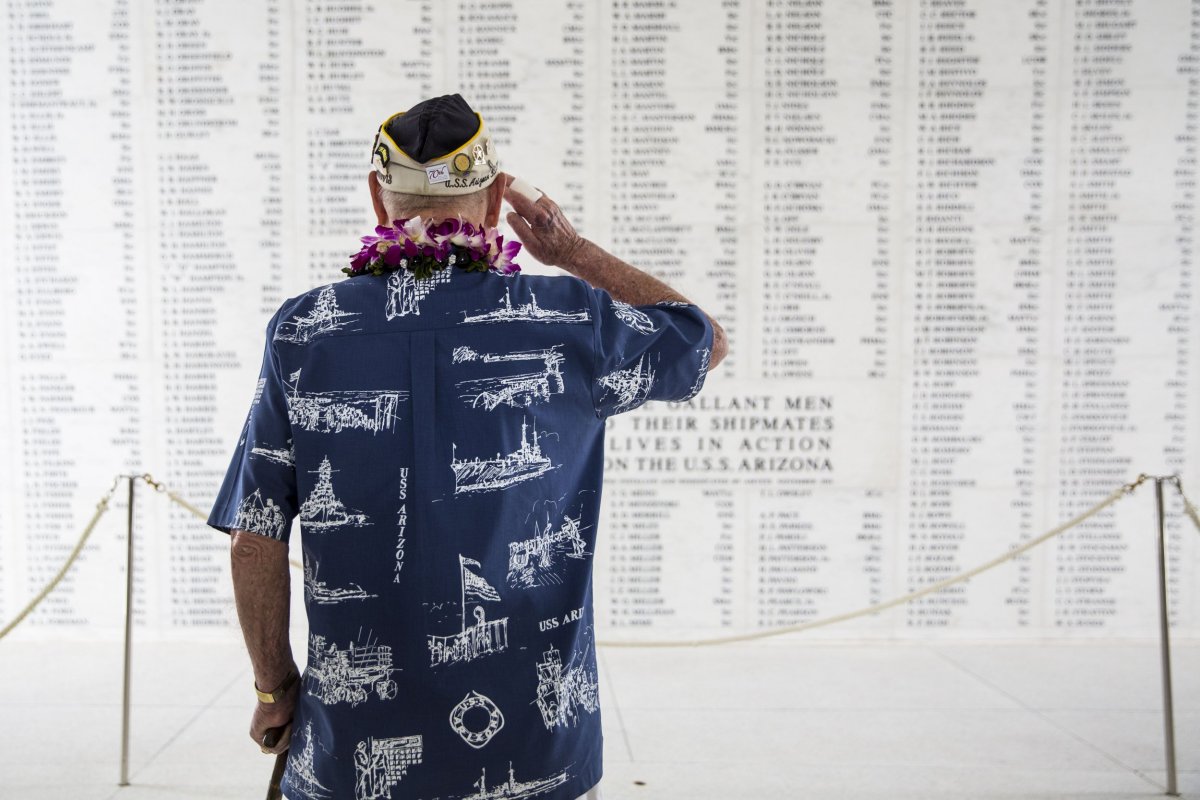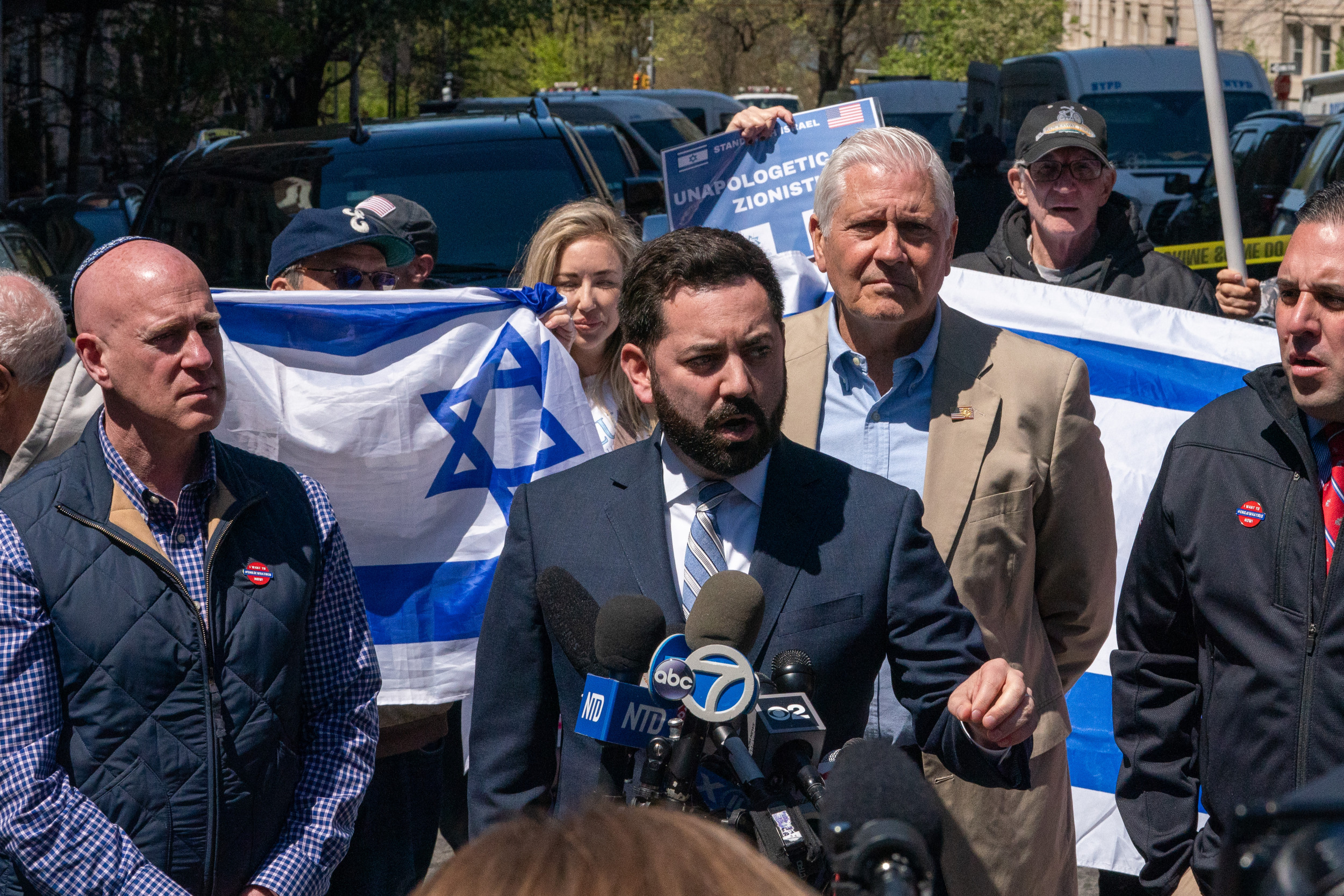
Seventy-six years ago, the United States was "suddenly and deliberately" attacked by Japan. President Franklin Roosevelt famously described December 7, 1941, as a date that will "live in infamy."
The attack began before 8 a.m. on a Sunday morning, with hundreds of Japanese planes swooping in for a surprise assault on U.S. warships in Pearl Harbor, Hawaii. America had not been expecting an attack, and Pearl Harbor found itself relatively undefended when Japan launched its assault.
The raid left almost 20 U.S. naval vessels, including eight battleships, damaged or destroyed, as well as more than 300 aircraft. More than 2,400 Americans were killed, and about 1,000 were wounded.

The Japanese attacked Pearl Harbor to cripple the U.S. Pacific Fleet, but America's aircraft carriers––perhaps the most vital type of warship––were not stationed there on December 7. Not long after the attack, these ships would go on the offensive against the Japanese.
The surprise assault on Pearl Harbor was a devastating moment for the U.S. that catapulted it into World War II, the deadliest conflict in human history. "No matter how long it may take us to overcome this premeditated invasion, the American people in their righteous might will win through to absolute victory," Roosevelt said as he addressed Congress on December 8 and asked it to declare war on Japan.
"With confidence in our armed forces, with the unbounding determination of our people, we will gain the inevitable triumph—so help us God," the president said.

Congress gave full support to war against Japan: The Senate voted 82-0 in favor, while the House approved the resolution by a 388-1 vote. The only person to vote against entering the war was Representative Jeannette Rankin of Montana, a devout pacifist. Rankin had also voted against the U.S. entering World War I.
Days later, on December 11, 1941, Germany and Italy declared war on America, and the U.S. government promptly returned the gesture. The war, which would last until 1945, turned America into a global power and changed the world irrevocably.
Few survivors of the Pearl Harbor attack are still alive. Five of the remaining survivors from the USS Arizona, the ship hit hardest by the attack, reunited at Arlington National Cemetery in July to pay tribute to those who were killed. The Arizona sank after it was hit by an 1,800-pound bomb, killing 1,177 sailors.
The survivors also met with President Donald Trump, who at the time said, "There are many remarkable things that I witness as president, but nothing can take the place of meeting heroes like those with us today. In them we see the strength of our nation, the courage of our men and women in uniform, the resolve to never accept failure and the belief that justice will always triumph."
Uncommon Knowledge
Newsweek is committed to challenging conventional wisdom and finding connections in the search for common ground.
Newsweek is committed to challenging conventional wisdom and finding connections in the search for common ground.
About the writer
To read how Newsweek uses AI as a newsroom tool, Click here.








